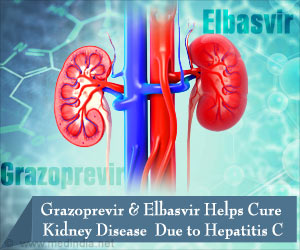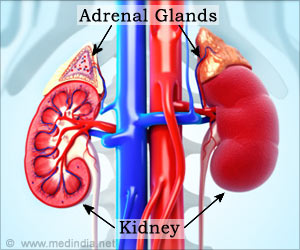High blood pressure (BP) or hypertension contributes to the progression of the chronic kidney disease (CKD) toward last stage of CKD. Hence, treatment of hypertension in CKD is imperative.
A new study recently published in the Lancet helps guide decisions regarding BP lowering therapy in patients with diabetes and CKD. Diabetes is one of the major causes of CKD.The study reveals that no BP lowering drugs are better than placebo in terms of survival in adults with diabetes and CKD. In other words, no BP lowering strategy prolonged survival in adults with diabetes and CKD.
The research found that among the high blood pressure controlling drugs, angiotensin-converting-enzyme inhibitor (ACE inhibitors), angiotensin-receptor blockers (ARBs), and endothelin inhibitors were the most effective in preventing end-stage renal disease. However, researchers stated that only ARBs were significantly superior to placebo.
The study highlighted that ACE inhibitors and ARBs, alone or in combination, were the most effective strategies against end-stage kidney disease.
Results also showed that ACE inhibitor plus ARB combination therapy was associated with a ‘borderline’ – the level is above normal but not quite in the high range yet – increased risk for hyperkalemia and acute kidney injury. Hyperkalemia is a medical condition in which the concentration of the electrolyte potassium in the blood is elevated resulting in fatal abnormal heart rhythms.
However, any benefits of combined ACE inhibitor and ARB treatment need to be balanced against potential harms of hyperkalaemia and acute kidney injury (AKI).
He also works with University of Sydney, Australia and Diaverum Academy - a provider of renal healthcare with about 300 clinics in Latin America, Europe, Australia and the Middle East.
“We pooled data from all existing trials that explored all benefits and harms of all these BP lowering agents. There is no difference in the risk of death with any of these agents compared to placebo and compared directly. Where direct comparison trials did not exist we were able to compare drugs directly with the innovative network meta analysis based on its standard assumptions. The findings are relatively robust,” Strippoli added.
Primary outcomes of the research were all-cause mortality and end-stage kidney disease. Co-authors of the study: Professor Jonathan Craig, University of Sydney, Australia and Professor Suetonia Palmer, University of Otago, New Zealand. The research was funded by Italian Medicines Agency - the national authority responsible for drugs regulation in Italy and Canterbury Medical Research Foundation, New Zealand.















